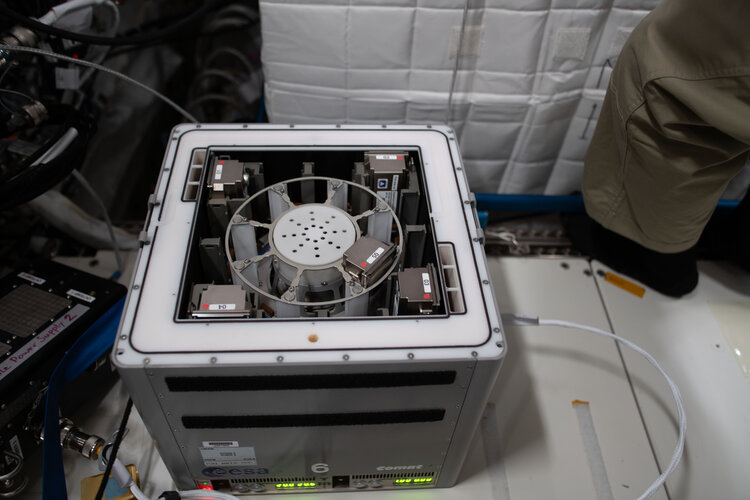Inside one of the containers of this 40-cm-across miniature laboratory in orbit, a battle is set to start between asteroid-like fragments and rock-hungry microbes, to probe their use for space mining in the future.
The University of Edinburgh’s ‘BioAsteroid’ payload is one of multiple experiments running simultaneously aboard ESA’s Kubik – Russian for cube – facility aboard Europe's Columbus module of the International Space Station. It found its way to orbit via the new commercial Bioreactor Express Service.
The experimenters want to see how BioAsteroid’s combination of bacteria and fungi interact with the rock in reduced gravity, including to observe whether characteristic ‘biofilms’ will be grown on rock surfaces, comparable to dental plaque on teeth.
The microbes could in the future be cultivated to help mine resources. So-called bio-mining has potential on Earth and in space exploration to recover economically useful elements from rock, as well as creating fertile soil from lunar dust.



 Image:
Asteroids vs. microbes
Image:
Asteroids vs. microbes